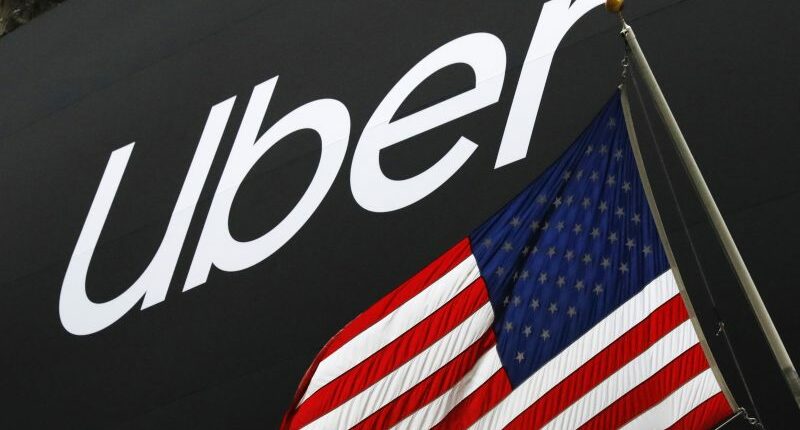Share this @internewscast.com

(KTLA) – Between 2017 and 2022, Uber received reports of sexual assault or misconduct in the United States nearly every eight minutes, as revealed by sealed court documents reviewed by The New York Times. This figure is significantly higher than the company has previously reported.
Uber has publicly characterized itself as one of the safest transport options, emphasizing through safety reports and marketing campaigns that 99.9% of U.S. trips are incident-free. However, newly unsealed records from extensive litigation against the company indicate that Uber recorded 400,181 reports of sexual assault or misconduct over those five years.
Comparatively, Uber’s earlier safety reports declared 12,522 instances of serious sexual assaults for the same timeframe, without citing the total number of incidents across all categories. Uber has not released equivalent data since 2022, though court filings suggest an increase in incident reports.
The Times reports that court documents reveal Uber’s safety policies were influenced by its efforts to grow its customer base, limit legal responsibility, and uphold its business structure, which categorizes drivers as independent contractors instead of employees. This classification reduces labor costs by not mandating benefits or overtime and minimizes oversight because drivers are not held to the same standards as traditional employees.
An internal 2021 brainstorming document on Uber’s global safety rules, as mentioned by The Times, stated, “Our purpose/goal is not to be the police.” The document further noted, “Our bar is much lower and our goal is to protect the company and set the tolerable risk level for our operations.”
Uber stated that around 75% of the 400,181 reports concerned “less serious” actions, such as flirting, commenting on appearance, or using explicit language. The company noted that these figures were unaudited, suggesting they might include false or erroneous reports. With 6.3 billion U.S. trips during this period, Uber said that these reports made up 0.006% of rides, with the most severe assaults accounting for 0.00002%.
“There is no ‘tolerable’ level of sexual assault,” Hannah Nilles, Uber’s head of safety for the Americas, told The Times. She said the company has invested in safety features such as GPS tracking, optional audio recording, and a 911 emergency button, while also launching sexual assault and misconduct training for drivers in the United States.
According to court documents reviewed by The Times, internal Uber teams studied patterns in sexual assault cases for years. Incidents were most likely to occur late at night and on weekends, often with pickups near bars, and women were most frequently the victims. Offenders were typically men, either drivers or passengers, with prior complaints and low ratings.
Uber tested safety interventions, including pairing female riders with female drivers and developing a “Safety Risk Assessed Dispatch” algorithm to avoid high-risk matches. The company found the female-to-female pairing reduced incidents but delayed introducing it in the United States, citing potential legal and cultural backlash, following the 2024 presidential election. That option is now being piloted in Los Angeles, San Francisco, and Detroit.
In a public statement responding to The Times investigation, Uber disputed suggestions that it downplayed safety issues. “Safety is a core value at Uber, and we have invested billions of dollars and countless hours to reduce safety incidents during trips,” the company said, adding that reports of serious sexual assaults on its platform have fallen by 44% since it began publishing safety reports in 2019.
Uber also noted that it was one of the first major companies to end forced arbitration in sexual misconduct cases, a move that has since led to thousands of lawsuits. This policy change allowed survivors to bypass private arbitration and file their sexual assault, harassment, or misconduct claims in federal or state courts, making the allegations and proceedings part of the public record.
Lyft has also reported thousands of sexual assaults. In a statement to The New York Times, Lyft said that reports of sexual assault are “statistically very rare” and represent far less than 1 percent of rides. The company added that it will continue investing in technology, policies, and partnerships to try to prevent and detect unsafe situations.
A U.S. Government Accountability Office report last year found sexual violence to be severely underreported across all modes of transportation and noted the absence of a centralized database for tracking such incidents.










